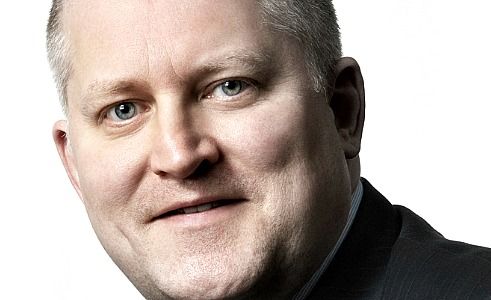After 40 years of capital dominating over labor, it seems likely that global economic policy will become less business friendly, says Darren Williams in an essay for finews.first.
finews.first is a forum for renowned authors specialized in economic and financial topics. The publishers of finews.com are responsible for the selection
The medium-term outlook for global asset prices is dominated by five interconnected secular trends: excessive debt, population aging, rapid technological change, rising populism, and deglobalization. In coming years, these five trends are likely to prompt a once-in-a-generation shift in the global policy regime.
Many of these trends are, however, already having an impact. Nowhere is that more obvious than for populism, which is steadily gathering force across Europe. This week’s European elections, for example, look set to show a surge in support for populist parties.
«The European elections are, however, just the tip of the iceberg as far as populism is concerned»
Being Europe, this is unlikely to herald any immediate policy change, but it makes much-need integration more difficult and highlights the ever-widening gulf between Europe’s citizens and its leaders.
The European elections are, however, just the tip of the iceberg as far as populism is concerned. More significant, is the ongoing trade war between the US and China which has already slowed global growth and is a clear indication that the rules governing global trade are about to change. Global trade integration has probably passed peak levels while pressure for de-globalization and a fairer distribution of wealth is rising fast.
«In the U.S., there’s growing support for once unthinkable approaches like Modern Monetary Theory»
Other important changes are underway at a national level. In the U.K., support for the Conservative government has finally buckled under the strain from Brexit, raising the risk of an early election and possibly a victory for a Labour government that would prioritize redistribution and public ownership in a way not seen since the 1970s.
In the U.S., there’s growing support for once-unthinkable approaches like Modern Monetary Theory (MMT), which would inevitably lead to greater government intervention, and signs that the Fed might soon start to more actively pursuing higher inflation.
«Not only will that weigh on economic growth, it’s also likely to push inflation higher»
As Brexit and the U.S./China trade dispute demonstrate, trying to predict exactly how each populist event plays out is a near impossible task. But we can make some general observations.
Most important, after a 40-year period in which capital has won out decisively over labor, there is much likelihood that global economic policy is to shift back in a much less business-friendly direction. Not only will that weigh on economic growth, but it’s also likely to push inflation higher. And that’s something markets are not currently prepared for.
Darren Williams oversees the Global Economic Research Group for Fixed Income. He is also responsible for economic analysis, interest-rate forecasting and bond market strategy for Western Europe. He has covered the major economies of Western Europe for almost 30 years. He joined AB Alliance Bernstein in 2003 from Citigroup, where his main focus was on providing thematic research to equity investors. Prior to that, he helped establish global economics coverage at Donaldson, Lufkin & Jenrette (DLJ). Earlier in his career, he held senior positions at UBS and Merrill Lynch. He has a BSc in banking and finance from British Loughborough University.
Previous contributions: Rudi Bogni, Peter Kurer, Oliver Berger, Rolf Banz, Dieter Ruloff, Werner Vogt, Walter Wittmann, Alfred Mettler, Peter Hody, Robert Holzach, Craig Murray, David Zollinger, Arthur Bolliger, Beat Kappeler, Chris Rowe, Stefan Gerlach, Marc Lussy, Nuno Fernandes, Richard Egger, Maurice Pedergnana, Marco Bargel, Steve Hanke, Urs Schoettli, Ursula Finsterwald, Stefan Kreuzkamp, Oliver Bussmann, Michael Benz, Peter Hody, Albert Steck, Martin Dahinden, Thomas Fedier, Alfred Mettler, Brigitte Strebel, Peter Hody, Mirjam Staub-Bisang, Nicolas Roth, Thorsten Polleit, Kim Iskyan, Stephen Dover, Denise Kenyon-Rouvinez, Christian Dreyer, Kinan Khadam-Al-Jame, Robert Hemmi, Anton Affentranger, Yves Mirabaud, Katharina Bart, Frédéric Papp, Hans-Martin Kraus, Gerard Guerdat, Didier Saint-Georges, Mario Bassi, Stephen Thariyan, Dan Steinbock, Rino Borini, Bert Flossbach, Michael Hasenstab, Guido Schilling, Werner E. Rutsch, Dorte Bech Vizard, Adriano B. Lucatelli, Katharina Bart, Maya Bhandari, Jean Tirole, Hans Jakob Roth, Marco Martinelli, Beat Wittmann, Thomas Sutter, Tom King, Werner Peyer, Thomas Kupfer, Peter Kurer, Arturo Bris, Frederic Papp, James Syme, Dennis Larsen, Bernd Kramer, Ralph Ebert, Marionna Wegenstein, Armin Jans, Nicolas Roth, Hans Ulrich Jost, Patrick Hunger, Fabrizio Quirighetti, Claire Shaw, Peter Fanconi, Alex Wolf, Dan Steinbock, Patrick Scheurle, Sandro Occhilupo, Will Ballard, Michael Bornhaeusser, Nicholas Yeo, Claude-Alain Margelisch, Jean-François Hirschel, Jens Pongratz, Samuel Gerber, Philipp Weckherlin, Anne Richards, Antoni Trenchev, Benoit Barbereau, Pascal R. Bersier, Shaul Lifshitz, Klaus Breiner, Ana Botín, Martin Gilbert, Jesper Koll, Ingo Rauser, Carlo Capaul, Claude Baumann, Markus Winkler, Konrad Hummler, Thomas Steinemann, Michael Welti, Christina Boeck, Guillaume Compeyron, Miro Zivkovic, Alexander F. Wagner, Eric Heymann, Christoph Sax, Felix Brem, Jochen Moebert, Jacques-Aurélien Marcireau, Peter Hody, Ursula Finsterwald, Claudia Kraaz, Michel Longhini, Michael Welti, Stefan Blum, Zsolt Kohalmi, Karin M. Klossek, Nicolas Ramelet, Søren Bjønness, Lamara von Albertini, Andreas Britt, Gilles Prince, and Fabrizio Pagani.


































